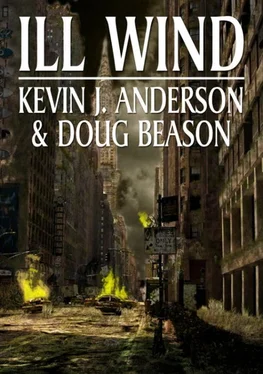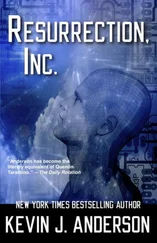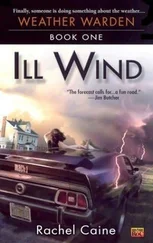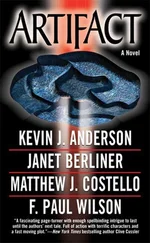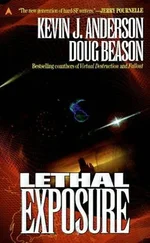As he cruised along, he craned his head to stare at several different types of windmill, the standard sunflower shape, three-bladed wind turbines, whiplike two-bladed propellers that spun around in a blur. Vertical-axis Darrieus wind turbines stood near the freeway like giant eggbeaters stirred by the breeze.
Tax incentives for alternative energy development had made most of the Altamont windmills feasible during the Reagan administration; when the tax credits ended, many investors sold their windmills, and some of the turbines had fallen into disrepair. The sprawling wind farm still generated a great deal of power, though, which was sold to the state electrical grid.
The windmills were set up much the way Spencer’s microwave antenna farm would work in White Sands. Windmills in the east; solar-power satellites in the southwest. Oil spill to the west. Spencer smiled: the future would have its way, sooner or later.
The car raced onward, leaving the windmills behind.
* * *
The Central Valley lay like a swath of the Great Plains down the middle of California.
Without a panicky chaos of cars around him, Spencer liked to drive and let his mind wander. He enjoyed daydreaming while racing down a desert highway, surrounded by the sprawling horizon, wide-open spaces. It was how he brainstormed, throwing out crazy ideas to himself until he found something that made sense.
And he wasn’t going to let this road trip go to waste.
He thought of his smallsats orbiting over the antenna farm. The technology of the collectors was nothing new. Silicon photovoltaic cells had been around since 1954, when the prototypes achieved only a 6% energy conversion from direct sunlight. The energy crisis in the 1970s turned an enormous research effort toward developing “clean and inexhaustible” solar power, pushing photovoltaic cells up to 20% efficiencies. In 1989 a concentrator solar cell used lenses to focus sunlight onto the cell surface, yielding even higher efficiencies. Gallium-arsenide and other types of photovoltaic materials also showed promise. Unlike electric generators, solar cells had no moving parts and could operate indefinitely if they were protected from damage. And they produced no pollution.
But widespread application of ground-based solar energy had always been hindered by its cost—up to a thousand times more than electricity generated by oil, coal, or hydroelectric plants.
Now that he had successfully demonstrated the technique of staggering focused microwave beams from low orbit, though, Spencer’s team had solved that problem. But there were practical considerations as to how many smallsats they could loft, and how many antenna farms could be scattered across the landscape.
The only way to convince people was to complete the experiments, get the facility providing real power for real people. It wouldn’t be difficult to hook up to New Mexico’s main power grid.
Spencer’s team had operated on shoestring budgets before. Life in grad school, even with Professor Mansfield’s generous help, had taught him how to make do. Thanks to the lukewarm review from Lance Nedermyer, Spencer’s gang back at White Sands retained only the minimum amount of money to keep going—”maintenance budget” the Department of Energy called it. Just enough to keep the lights on and the custodians employed. But ingenious use of resources could always counterbalance budget cutbacks. They could even sell electricity to the Public Service Company of New Mexico.
Spencer intended to keep calling his own shots, performing the research he could afford. It was the type of challenge he enjoyed.
He pushed down on the Mazda’s accelerator, listening to the engine hum louder, but the landscape was so vast it crawled by. He couldn’t wait to get back to White Sands.
Pretending to study from a stolen calculus textbook, Connor Brooks sat at an open-air table at the Stanford student union and looked for his next mark. Campus was easy pickings.
He shook his shaggy head. Serves the rich bastards right! Teach them a lesson they won’t learn in their snooty classes.
In the first few hours after the Zoroaster wreck, Connor had thought himself doomed. His original plan had been to hide on the gigantic tanker and then sneak off when it reached the Oilstar terminal; but that lunatic Uma had rammed the ship into the bridge. Then the Butthead had tried to blame everything on him!
But the Coast Guard and the news media saw right through that flimsy excuse. A captain was responsible for his ship. Uma never should have left the bridge, fire alarms or no fire alarms, and he never should have been such a fascist in the first place—it was only a matter of time before his crew rebelled. Besides, tankers like the Zoroaster should carry better safety mechanisms, collision-avoidance systems so that some Captain Butthead couldn’t ram into a bridge. Some people just never learn.
He kept his gaze moving, scoping the various groups of pimply-faced kids. The meaningless equations in the math book blurred under his eyes. People really made sense out of this stuff? The students relaxed under red-and-white striped umbrellas, drinking beer and eating pizza. Some sat alone. He kept an eye on one kid with long, limp brown hair and a sorry attempt at a moustache. The kid shot down one imported beer after another as he read a fat classic-looking novel. Sooner or later the kid would have to get up and head for the bathroom.
About one time in five, the idiots left their backpacks unattended. Connor enjoyed giving somebody else a few hard knocks for a change.
After another fifteen minutes, the kid spread his paperback novel out on the table, squashed the spine with the palm of his hand to make sure it lay flat, then stood up. He rubbed the small of his back, scratched his shoulderblades, then shuffled toward the glass doors leading inside to the restrooms.
He left the backpack sitting at his place.
Connor shook his head at the kid’s stupidity. Feigning a yawn, he stood up, leaving the calculus book on the table. Someone would eventually pick it up. Looking as natural as could be, Connor strolled inside one door of the union, then out another door, circling back to the abandoned table as if it was his own. Don’t look at me. I just forgot this stuff.
The fat book face-down on the table said Anthem by Ayn Rand. Gee, just the type of light fluff everybody wanted to read while sitting out on the Union patio on a sunny late-spring afternoon. With a glance around, Connor shouldered the kid’s pack, then as an afterthought, he lifted up the book, flipped a few pages to lose the kid’s place, then set it back down again, smiling.
Moving quickly, but not hurriedly, he walked away. As he moved, Connor fondled the backpack; the slick nylon fabric slid across his fingertips. Mom and Dad probably bought it for the kid just before the semester started.
He sauntered around the side of the building, past a stained concrete loading ramp by the cafeteria and two dark green dumpsters surrounded by the cloying sweet-sour smell of old garbage. Sometimes it was fun to sit and watch the expressions of loss and confusion when the suckers came out to find their belongings gone, but Connor didn’t feel like it today. He’d been hanging out at Stanford for days, and the campus cops would catch onto his game sooner or later. He wanted to get out of the Bay Area as soon as possible.
He sat down on the tile lip of the dry fountain and unshouldered the pack. From this vantage point, Connor glanced up at the wandering students going in and out of the Union to use the photocopy machines and the pay phones. Still no sign of the kid. Maybe he had to take a crap.
Читать дальше
